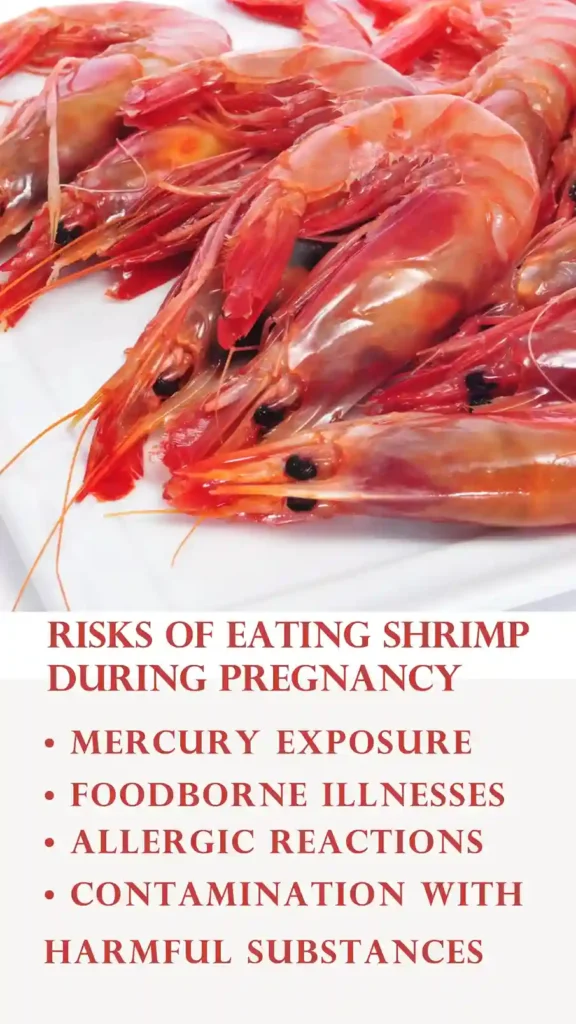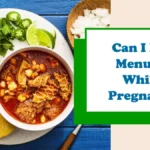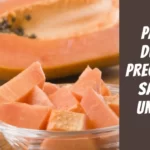
Pregnancy is a time of excitement, anticipation, and many questions. One of the most common questions that expectant mothers have is about their diet. With so many foods to avoid, it can be challenging to know what is safe to eat. One food that often comes up in this discussion is shrimp. Can pregnant women eat shrimp? In this article, we will explore this question and provide you with the information you need to make an informed decision about your diet during pregnancy.
Can Pregnant Women Eat Shrimp?
Shrimp is safe to eat during pregnancy if it is prepared and cooked properly. It is a low-calorie, high-protein seafood option that offers several essential nutrients. However, pregnant women should exercise caution and follow certain guidelines to ensure their safety and that of their unborn child.
What are the Safety Precautions for Seafood during pregnancy?
Eating seafood during pregnancy can be a great way to get the nutrients you and your baby need. Seafood is a good source of protein and omega-3 fatty acids, which can promote your baby’s brain and eye development. However, some types of fish and shellfish contain potentially dangerous levels of mercury, which can harm your baby’s developing nervous system. Therefore, it is important to take safety precautions when consuming seafood during pregnancy.
Fish to Avoid
The Food and Drug Administration (FDA) recommends that pregnant women avoid certain types of fish that are high in mercury, including:
- Bigeye tuna
- King mackerel
- Marlin
- Orange roughy
- Shark
- Swordfish
- Tilefish
Fish to Limit
The FDA recommends that pregnant women limit their consumption of white (albacore) tuna to 6 ounces (168 grams) a week and avoid eating more than one serving (6 ounces) of fish with similar mercury concentrations to albacore tuna per week. Other types of seafood that contain little mercury and are safe to eat during pregnancy include:
- Anchovies
- Catfish
- Cod
- Herring
- Light canned tuna
- Pacific oysters
- Pollock
- Salmon
- Sardines
- Shad
- Shrimp
- Tilapia
- Trout
Precautions to Take
To avoid harmful bacteria or viruses in seafood, it is important to avoid raw fish and shellfish, such as sushi, sashimi, ceviche, and raw oysters, scallops, or clams. Additionally, it is important to avoid large, predatory fish, such as shark, swordfish, king mackerel, or tilefish, to reduce your exposure to mercury. When cooking fish, make sure it is cooked to safe internal temperatures to protect against microbes that might be in the food. The American College of Obstetricians and Gynecologists (ACOG) also recommends that pregnant women avoid all raw and undercooked seafood, eggs, and meat to protect against Listeria, a type of bacteria that can cause serious illness in pregnant women and their babies.
Related: Safe Seafood Choices During Pregnancy
What are the Benefits of Eating Shrimp during Pregnancy?
Shrimp is a nutritious food that can provide many benefits for pregnant women. Here are some of the benefits of eating shrimp during pregnancy:
- Shrimp is loaded with Omega-3 fatty acids, iron, magnesium, and other nutrients that women need during pregnancy.
- Eating shrimp may help lower the risk of anemia during pregnancy as it is rich in iron.
- Shrimp is a good source of vitamin B2, B12, DHA, protein, iron, magnesium, and potassium, which are important for overall health while pregnant.
- Shrimp contains significant amounts of high-quality protein and other nutrients, such as iodine, magnesium, zinc, and calcium.
What are the Potential Risks of Eating Shrimp during Pregnancy?

Here are the potential risks of eating shrimp during pregnancy:
- Mercury exposure: Shrimp is known to contain mercury, which can be harmful to the developing fetus. High levels of mercury can affect the baby’s nervous system and brain development. It is recommended to limit the intake of seafood with higher mercury levels, including shrimp, during pregnancy.
- Foodborne illnesses: Shrimp can carry bacteria, viruses, or parasites that may cause foodborne illnesses, such as salmonella or listeria. These infections can lead to complications during pregnancy, such as miscarriage, preterm birth, or severe illness in the newborn. It is crucial to ensure that shrimp is cooked thoroughly to minimize the risk of foodborne illnesses.
- Allergic reactions: Some individuals may have allergies or sensitivities to shellfish, including shrimp. If you have a known shellfish allergy, consuming shrimp during pregnancy can trigger allergic reactions, which can range from mild discomfort to severe symptoms that may affect both the mother and the baby.
- Contamination with harmful substances: Shrimp harvested from polluted waters may contain contaminants like pollutants, heavy metals, or pesticides. These substances can be harmful to both the mother and the developing baby. It is advisable to select shrimp from trusted sources and ensure they meet safety standards.
What are the Guidelines for Consuming Shrimp Safely during Pregnancy?
Here are the guidelines for consuming shrimp safely during pregnancy:
- Shrimp is safe to eat during pregnancy as it contains low levels of mercury and is high in protein, iron, and zinc, which are crucial nutrients for the baby’s growth and development.
- Pregnant women should consume well-cooked shrimp since raw or undercooked seafood can contain harmful pathogens that cause foodborne illnesses and have a negative impact on maternal health and the fetus.
- Pregnant women should choose the right type of shrimp, cook it thoroughly, and purchase it from reputable sources to reduce the risks of contamination with bacteria, viruses, or parasites that can harm the unborn baby.
- The Food and Drug Administration (FDA), the Environmental Protection Agency (EPA), and the 2015-2020 Dietary Guidelines for Americans recommend that pregnant women eat at least 8 ounces and up to 12 ounces of a variety of seafood lower in mercury a week, which is about two to three servings. Shrimp is one of the seafood options that is low in mercury and high in omega-3 fatty acids, making it a safe and healthy choice for pregnant women.
- Pregnant women should avoid large, predatory fish such as shark, swordfish, king mackerel, or tilefish, which contain high levels of mercury. They should also limit white (albacore) tuna and tuna steaks to 6 ounces a week.
- Pregnant women should avoid raw seafood and be careful with fish that manufacturers have smoked and refrigerated. It’s important to purchase fish, shrimp, and other seafood from grocery stores and fish markets that have a good reputation.
How much Shrimp can Pregnant Women safely Eat per Week?
Pregnant women can safely eat 8 to 12 ounces of fully cooked shrimp per week, which is about two to three meals.
What are some Recipes for Fully Cooked Shrimp that Pregnant Women can Enjoy?
There are many delicious and safe ways for pregnant women to enjoy fully cooked shrimp. Here are some recipes to try:
- Shrimp Alfredo Pasta: Heat a large skillet on medium-high heat and add 1 tablespoon butter and 1 tablespoon olive oil until melted. Add the shrimp and 2 tbsp minced garlic and cook for 2-3 minutes until the shrimp is pink. Remove the shrimp from the skillet and set aside. In the same skillet, add 1 cup heavy cream, 1/2 cup grated Parmesan cheese, and 1/4 tsp black pepper. Stir until the sauce thickens. Add the cooked pasta and shrimp to the skillet and toss until coated with the sauce. Serve hot.
- Shrimp Tacos: Heat a large skillet on medium-high heat and add 1 tablespoon olive oil until hot. Add the shrimp and 1 tsp chili powder, 1/2 tsp garlic powder, and 1/4 tsp cumin. Cook for 2-3 minutes until the shrimp is pink. Warm up the tortillas in the microwave or on a skillet. Assemble the tacos by adding the shrimp, shredded lettuce, diced tomatoes, and shredded cheese. Serve with a side of salsa and guacamole.
- Shrimp Stir-Fry: Heat a large skillet on medium-high heat and add 1 tablespoon vegetable oil until hot. Add the shrimp and cook for 2-3 minutes until the shrimp is pink. Remove the shrimp from the skillet and set aside. In the same skillet, add 1 cup sliced bell peppers, 1 cup sliced onions, and 1 cup sliced mushrooms. Cook for 5-7 minutes until the vegetables are tender. Add the cooked shrimp back to the skillet and toss with the vegetables. Serve hot with a side of rice.
These recipes are easy to make and packed with flavor. Pregnant women can safely enjoy fully cooked shrimp as part of a healthy and balanced diet.
What are the Best Seafood Choices During Pregnancy?
Here are some of the best seafood choices during pregnancy:
- Salmon: Salmon is a low-mercury fish that is high in omega-3 fatty acids, making it a safe and healthy choice for pregnant women.
- Anchovy: Anchovies are low in mercury and high in omega-3 fatty acids, making them a safe and healthy choice for pregnant women.
- Herring: Herring is a low-mercury fish that is high in omega-3 fatty acids, making it a safe and healthy choice for pregnant women.
- Sardine: Sardines are low in mercury and high in omega-3 fatty acids, making them a safe and healthy choice for pregnant women.
- Cod: Cod is a low-mercury fish that is safe to eat during pregnancy. Other white fish like haddock, monkfish, and plaice, as well as cooked shellfish, are all safe to eat as part of a healthy pregnancy diet.
- Shrimp: Shrimp is a low-mercury seafood option that is high in protein, iron, and zinc, making it a safe and healthy choice for pregnant women.
- Clam: Clams are safe for pregnant women to eat if they are fully cooked. Clams should never be eaten raw or undercooked. They’re safe in clam chowder if the other ingredients are also pregnancy-safe, like pasteurized milk and cream.
- Scallop: Scallops are low in mercury and high in protein, making them a safe and healthy choice for pregnant women.
- Haddock: Haddock is a low-mercury fish that is safe to eat during pregnancy. The FDA lists haddock as one of the best choices of fish for pregnant women.
Conclusion
Hope, you have now got the answer to your question “Can Pregnant Women Eat Shrimp? Shrimp can be a safe and nutritious addition to a pregnancy diet when consumed with proper care. It offers essential nutrients like lean protein, omega-3 fatty acids, and various vitamins and minerals. However, pregnant women should ensure that shrimp is cooked thoroughly to eliminate the risk of foodborne illnesses. By following the guidelines mentioned in this guide, expecting mothers can enjoy shrimp while safeguarding their health and the well-being of their unborn child.
Related: Nutrition During Pregnancy
Frequently Asked Questions (FAQs)
Can Pregnant Women eat Shrimp if they have Seafood Allergies?
If they have a known seafood allergy, it’s best to avoid shrimp during pregnancy to prevent an allergic reaction.
Can Pregnant Women eat Shrimp safely from a Salad Bar or Buffet?
It is generally recommended to avoid shrimp from self-serve salad bars or buffets due to potential cross-contamination and improper storage.
Can Pregnant Women eat Shrimp during the First Trimester?
Yes, pregnant women can eat shrimp during the first trimester if it is properly cooked and you follow the safety guidelines.
Are there any alternatives to shrimp that offer similar nutritional benefits?
If you cannot consume shrimp, you can consider other seafood options such as Salmon, Anchovy, Herring, Sardine, Cod, Shrimp, Clam, Scallop, and Haddock, which also provide essential nutrients.
Can Pregnant Women eat Raw Shrimp?
Pregnant women should avoid eating raw or undercooked shrimp as it can contain harmful pathogens that cause foodborne illnesses and have a negative impact on maternal health and the fetus. It is recommended to consume well-cooked shrimp instead.
How much Shrimp can Pregnant Women Eat?
Research suggests eating between 8 and 12 ounces of shellfish or fish per week, which is two or three meals. Pregnant women should still limit their intake of low-mercury seafood, including shrimp, to no more than 12 ounces per week.












